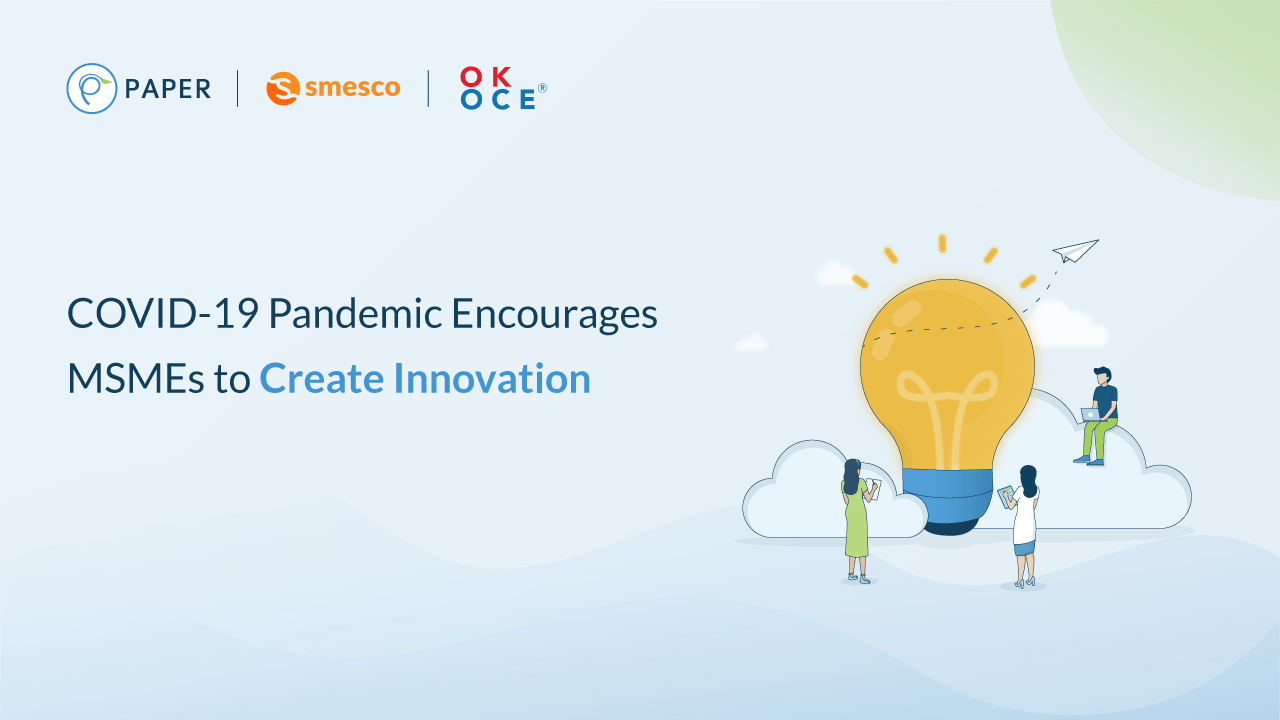Jakarta, 4 November 2020 – Since it was announced in early March 2020 yesterday, Indonesia has officially entered its 9th month during the COVID-19 pandemic. During these 9 months, the Indonesian people have witnessed major changes that have occurred in various aspects of the economy, especially MSMEs.
As a driver of the country’s economy as well as an absorber of labor, MSMEs have suffered huge losses because their business activities have stalled and experienced a drastic drop in income.
Seeing this, Paper.id collaborated with SMESCO and OK OCE to conduct a survey entitled “The Impact of the COVID-19 Pandemic on MSMEs”. This survey was conducted online and sent to more than 3000 MSMEs in 22 provinces in Indonesia.
This survey aims to provide information about the current picture of the impact of the pandemic experienced by MSMEs. That way, MSME actors can plan mitigation steps to minimize the impact that occurs.
Read more: How to get your invoice paid before due date
Survey findings: MSMEs experience a decrease in turnover
Based on existing data findings, as many as 78% of respondents admitted to experiencing a decrease in turnover, with the largest category being a decrease of more than 20% (67.50%). The decline occurred in almost all business sectors.
In the data, there are 3 types of businesses that experience the greatest impact, namely culinary (43.09%), services (26.02%), and fashion (13.01%). Even though the majority of respondents do online and offline marketing (63.40%), this still cannot improve existing business activities, due to the comprehensive effects of the pandemic and resulting in decreased consumer purchasing power.
The impact of decreased turnover was followed by delays in business operations and financial activities. As many as 65% of respondents experienced problems in business activities, such as temporary closure of businesses, difficulties in adapting to WFH, and 24% of operational problems stemming from customers such as decreased consumer purchasing power.
The survey also showed that respondents experienced financial problems. 68% of respondents experienced internal financial problems, such as increased operating costs for health protocols (masks and hand sanitizers), and had to use personal working capital. Meanwhile, 26% of respondents admitted that it was difficult to apply for a loan from a bank.
Read more: 5 solutions for invoice dispute to get paid faster
Mitigation efforts: From business pivots to business expansion
The problem of the COVID-19 pandemic does not hinder the creativity of business people in finding solutions so that businesses can continue to run. Based on the results of existing data, the majority of respondents chose to look for new markets (23.93%).
Meanwhile, 13.44% of respondents chose to pivot their business or sell new products. The CEO and Co-Founder of Paper.id, Jeremy Limman argued that “Of course, this pandemic has an impact on the business ecosystem in the world, but I believe the pandemic will encourage the creativity of business people to make new innovations.
For example, the financial crisis in 2008 which finally gave rise to fintech. Therefore, I am very optimistic that this pandemic will give birth to many new business trends, as long as business players are willing to adapt to the new world conditions ”.
From several interviews that have been conducted, respondents admitted to selling items that are in demand in the market such as masks or health products. As many as 8.52% of respondents also said that they decided to expand their business.
Mirah Ayu as Head of Section (KASI) Public Relations of SMESCO Indonesia added that “business fields related to basic needs and health and all digital-based businesses, both service products and sales methods, will be increasingly in demand, such as frozen food, herbal drinks, hand sanitizers, masks, and travel. kits to support a lifestyle are mobile likely to be the most sought after both during and after a pandemic ”.
Regarding the level of optimism of business actors in facing the pandemic, the data is divided into two parts. The first part, with a level of optimism under one year as much as 67.32% and over one year with 32.68%.
Another thing that needs to be considered is the recovery steps that need to be taken by MSME actors so that business returns to normal. In line with this, Prof. Indra Cahya Uno as the founder of OK OCE said, “During a pandemic, we are used to dealing with existing challenges, for example health protocols. This habit will not fade after a pandemic and he will continue to stick. We will be able to face these challenges if we help each other to turn challenges into new business opportunities.”
- Paper.id & HIPMI Sign MOU to Enhance Digitalization & Processes - October 2, 2022
- 4 Ways to Boost SMEs Success - August 16, 2022
- Paper.id & Blibli Collaborate to Streamline E-Commerce Invoice - July 25, 2022


